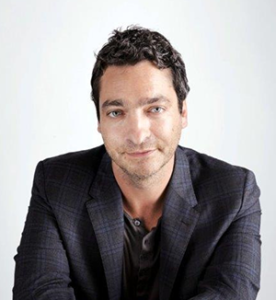 Increasingly, pharma and biotech companies are looking towards personalized medicine to guide their portfolios, developing therapies designed to address the needs of individual patient populations.
Increasingly, pharma and biotech companies are looking towards personalized medicine to guide their portfolios, developing therapies designed to address the needs of individual patient populations.
Nanobiotix (EMA:NANO) has chosen to look in the other direction, according to co-founder & CEO Laurent Levy.
“What we have done in our company is trying to go for the opposite: to find 1 product that could potentially help millions of patients,” Levy told Drug Delivery Business News.
The Paris-based company is testing its NanoXray technology in an array of cancer types – from soft tissue sarcoma to liver cancer. The company has 7 on-going clinical trials across Europe, the U.S. and 2 countries in Asia, Levy said.
This month, Nanobiotix touted data from its Phase I/II head and neck cancer trial at the American Society of Clinical Oncology meeting.

The study enrolled patients ages 70 or older with advanced stage III/IV cancer. After treatment with Nanobiotix’s nanoparticle product, NBTXR3, 7 out of 9 patients had a complete response at the 10% dose level. Also, the candidate demonstrated a strong safety profile, with no adverse treatment-related events.
After 12 months of follow-up, none of the patients treated at the high dose of NBTXR3 have relapsed, Levy said.
The company’s platform technology was designed to boost the effects of radiotherapy within cancerous tissue without increasing the dose of radiation that healthy tissue is exposed to during treatment.
The nanoparticle treatment can be either locally injected or administered systemically, at which point it accumulates in the cancerous tissue. When it’s exposed to ionizing radiation, the nanoparticles generate massive amounts of electrons, amplifying the dose of energy within the tumor.
“The product is meant to increase the dose within the tumor without increasing the dose in surrounding tissue,” Levy said.
From day 1 of the treatment until the end of radiotherapy, the amplified energy stays within the tumor.
Also at ASCO, the company highlighted data from a 26-patient Phase II/III trial in soft tissue sarcoma. The data showed that radiotherapy-nanoparticle combo can switch “cold” tumors to “hot” tumors, rendering them vulnerable to a patient’s immune system.
Levy said the company hopes to win its 1st European approval in soft tissue sarcoma by the end of 2017.
“We may have 1 of those rare products in oncology where you could have something that will impact survival, quality of life and good, if not excellent, safety.”
